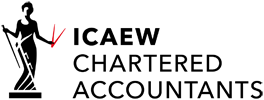Moore Accountancy Blog: Child Benefit – what you need to know about the changes

In 2012 the Government announced its decision to withdraw child benefit for the higher-income households.
As of 7thJanuary 2013 about 1.2 million families have had their child benefit either reduced or cut.
HOW DOES IN WORK?
If you are a parent with a child under 16 or under 20 in certain cases (staying in approved education or training) you are entitled to child benefit. Child benefit is basically a tax-free payment from the Government to help you cope with the cost of raising your children. You get £20.50/week for your eldest child and £13.55/week for each of your other children (rates fixed until April 2015).
But since the beginning of 2013, if you and/or your partner earn more than £ 50,000 (all taxable income) you will not be entitled to the total amount of child benefit. And if you earn £60,000 you lose the right to claim the benefit.
WHAT HAS CHANGED?
The government has introduced the “high income child benefit tax”. If you are affected by the change you should have filled a self-assessment form which specifies whether you or your partner are earning above the threshold and claiming child benefit. In that case 1% of every £100 earned over £50,000 is repaid. In the case where you and your partner both earn above £50,000 this will only apply to the highest income. If one of you is earning £60,000 (after pension contributions and gift aid) the full amount of child benefit is repaid.
You can work out the child benefit you are entitled to and your tax charge using HMRC Child benefit tax calculator.
You can also choose not to claim child benefit in which case you are exempted from filling in a self-assessment form. However you can still fill in a Child benefit claim form to get National Insurance Credit which counts towards the state pension.
OTHER CHANGES
This year child benefit has not increased with inflation for 2014/15 as the government has frozen the amount as at the 2013-2014 rates. It is planned to rise by 1% over the next two years.
TAX PLANNING TIPS
- If your income varies (due to commission and bonuses), it may be worth still claiming the child benefit but saving it in a different account in case you have to repay it.
- It is worth assessing your pension contributions and gift aid before the end of the tax year to see if you can come under the £50,000 taxable income threshold
- If you are self-employed then you may have more flexibility in assessing your total income.
Contact Moore Accountancy to discuss how we can help you and your business.
News
On 06/03/24 Chancellor Jeremy Hunt presented his Spring Budget to […]
Companies House have stated that they will be increasing their […]
On 22/11/23 Chancellor Jeremy Hunt presented his Autumn Statement to […]
The trend towards digital paperless office solutions is rapidly increasing, […]
The VAT Flat Rate scheme (FRS) was introduced in 2002 […]









